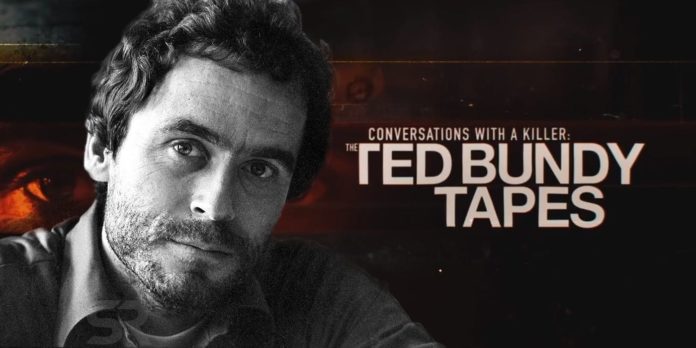Conversations With A Killer: Worth Being Heard?
Feb 5, 2019
It’s 30 years after the execution of one of the most notorious serial killers Ted Bundy, and America’s obsession with true crime shows is at a peak once again. On Jan. 24, 2019 Netflix released its 4-part docu-series Conversations With a Killer: The Ted Bundy Tapes, which goes through the timeline of Bundy’s murders narrated by police officers, journalists and, you guessed it, Bundy himself.
Using a collage of archival news footage from the ’70s, interviews with those involved, and the recorded tapes themselves, Oscar-nominated director Joe Berlinger gives true-crime lovers a more in-depth look into the stories of the killer’s dozens of murders and assaults. Netflix even issued out a warning to viewers against watching the series alone because of the never before seen disturbing content revealed in the extensive interviews between Bundy and investigative journalist Stephen Michaud. Fans, however, were quick to begin binging 4 hours of what is promoted as a “profound insight into the mind of a notorious serial killer” – which proves to be difficult to achieve with someone as calculated as Bundy.
Out of the roughly 100 hours of audio recordings of Bundy during his imprisonment, there is a clear sense of tension in the discussed topics. For example, when asked about his childhood, Bundy is more than eager to go into every minuscule detail of his upbringing as he described himself as a “normal kid.” Yet, when he hesitatingly discusses his crimes, he generally avoids admitting them and sometimes even refers to himself in the third-person perspective. While listening to Bundy describe his horrific murders in such a detached manner, it’s understandable why some viewers might pause in the middle of an episode to cool off- I sure did.
Still even in some of the most chilling portions of the tapes, it is hard to distinguish any type of intimacy or authenticity as Bundy conducts himself similarly to as he did in public television interviews. If anything, the ‘real’ Bundy was too often masked by the charming, charismatic Bundy presented in many of the audio recordings and public appearances.
In addition to the prominently featured tapes, Berlinger also includes a variety of other interviews and news footage in an attempt to unscramble Bundy’s whole life story- ranging from his ‘innocent’ childhood to his multiple killing sprees to the media circus surrounding his trial and eventual execution. The structure of the series, however, seems extremely messy and confusing as the point of focus constantly jumps back and forth between different years and different topics. Honestly, it was annoying skipping from his love story with Carole Anne Boone to the investigative evidence of his crimes- which included abduction, torture, rape, and murder of over 30 women- to the actual tapes themselves. Although Bundy mentions in the first episode that he prefers storytelling in a chronological fashion, the docuseries hardly does so as it zips back and forth between different years.
Despite the confusing timeline and difficulty in pulling apart the mechanics of Ted Bundy’s mind, Netflix’s docuseries does cover an important issue: the romanticization of white serial killers. Often times, killers such as Bundy dominate the headlines for the sophistication of their crimes. What had been a recurring story in the news has now turned into a full-blown obsession about the ‘genius’ behind serial killers. What’s more disturbing, however, is that after the series premiered on Netflix, many fans were quick to gush over Bundy’s good looks and charismatic manners.
This reaction was only fueled when Netflix released its trailer for Extremely Wicked, Shockingly Evil and Vile where Zac Efron assumes the role as Bundy. While many criticize the glamorization and romanticization of Ted Bundy in the docuseries and film, both directed by Berlinger, I think that this particular aspect gives viewers more insight than any other portion of the narrative. The truth is, Ted Bundy used his charisma and charm to inflict these horrific crimes and I see no wrong in illustrating these tactics just as they were through Efron. Overall I would rate the Conversations With a Killer: The Ted Bundy Tapes a 7/10 and I plan on watching the film once it premieres.




